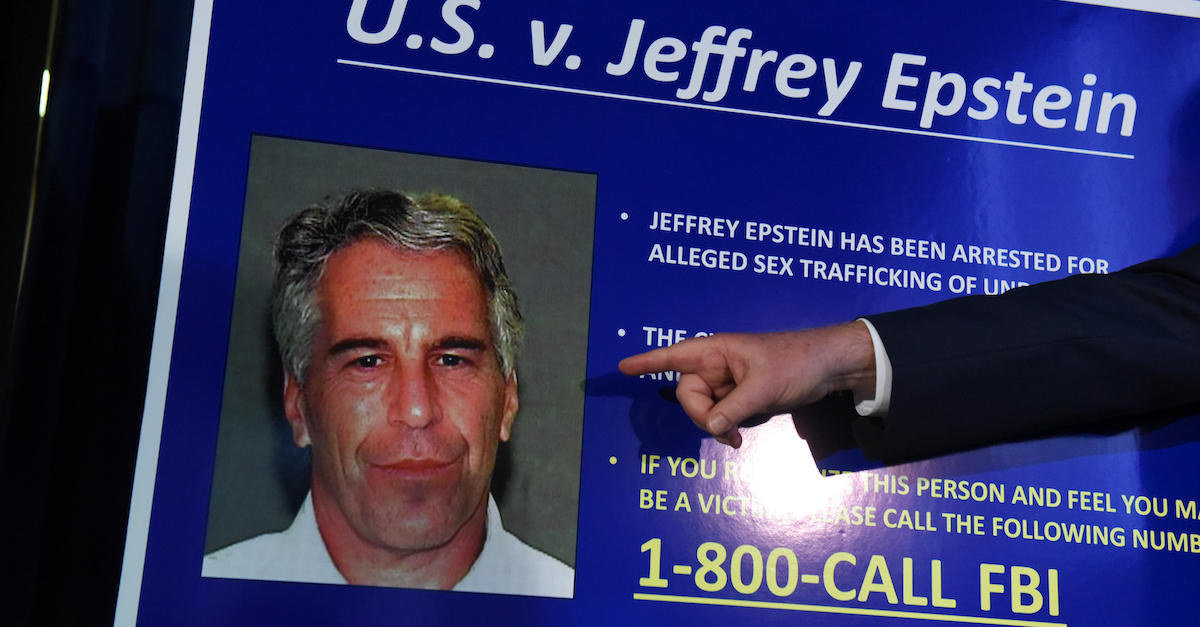
A Florida judge on Tuesday blocked investigators from gaining access to sealed grand jury records pertaining to since-deceased pedophile Jeffrey Epstein.
Palm Beach County Chief Judge Krista Marx, a former Palm Beach County prosecutor, rejected the request made by special prosecutors from the State Attorney’s Office, who Governor Ron DeSantis (R) appointed to examine the initial investigation into Epstein and eventual sweetheart plea deal that included a very generous work-release program.
According to a report from the South Florida Sun-Sentinel, the special prosecutors wanted to know whether the 2006 Epstein grand jury heard any testimony as to whether police had evidence that several female minors were sexually assaulted by Epstein at his Palm Beach estate.
Former Palm Beach County State Attorney Barry Krischer’s office convened a grand jury that indicted Epstein only for soliciting prostitution, much to the dismay of former Palm Beach police chief Michael Reiter.
Reiter was, in fact, so unnerved by “extremely unusual and disappointing” treatment of the case that he asked Krischer by letter to remove himself from the case, and forwarded the evidence police gathered to the FBI. What happened after that is widely known.
Former U.S. Attorney Alexander Acosta’s office cut a deal with Epstein that immunized Epstein and co-conspirators from federal prosecution in Florida. Victims were not notified. Epstein went on to plead guilty to two state charges for soliciting prostitution of minors, had to register as a sex offender for life, and enjoyed extraordinary work-release privileges that a lawyer says Epstein abused.
Notably, Krischer blamed Acosta in July for letting Epstein off the hook.
Judge Marx worked as a Palm Beach County assistant state attorney from 1985-1999. This overlapped with Krischer’s tenure as state attorney. The judge ultimately wrote off the request to unseal grand jury documents as a “fishing expedition.”
“Marx pointed to well-established Florida law that the closed-door grand jury proceedings can be unsealed only as a ‘last resort,’ and when it is clear that doing so will lead to a discovery of wrongdoing,” the Sun-Sentinel report said.
The judge told special prosecutors that they were required to make more than a “bare-bones” claim that the records should be unsealed in the “furtherance of justice.” Instead, she instructed them to first try and obtain the information they sought through other means, such as questioning Epstein’s victims as to whether they were asked to testify before the grand jury.
Marx told the prosecutors the had failed to provide even a “scintilla of evidence” to indicate corruption, saying “it sounds like a fishing expedition to me.”
“I’m not understanding how it will be helpful and to what end,” she added.
Noted Epstein attorney Jack Goldberger attended the hearing and afterward said Judge Marx’s ruling was correct.
“They have not met their burden for releasing the grand jury testimony,” he said, according to CBS12 News. “Not that there’s ever going to be anything unusual found in there.”
Goldberger categorically denied that there was evidence that Epstein’s defense improperly influenced decision-making of state and federal prosecutors.
As previously reported by Law&Crime, federal authorities are currently investigating Epstein’s associate and alleged madam Ghislane Maxwell, who’s been accused of luring young women for Epstein to prey upon and of participating in alleged sexual assaults.
Epstein controversially died in August while in federal custody in Manhattan. It was officially ruled a suicide. Epstein was jailed ahead of trial on child sex-trafficking charges.
[image via Stephanie Keith/Getty Images]